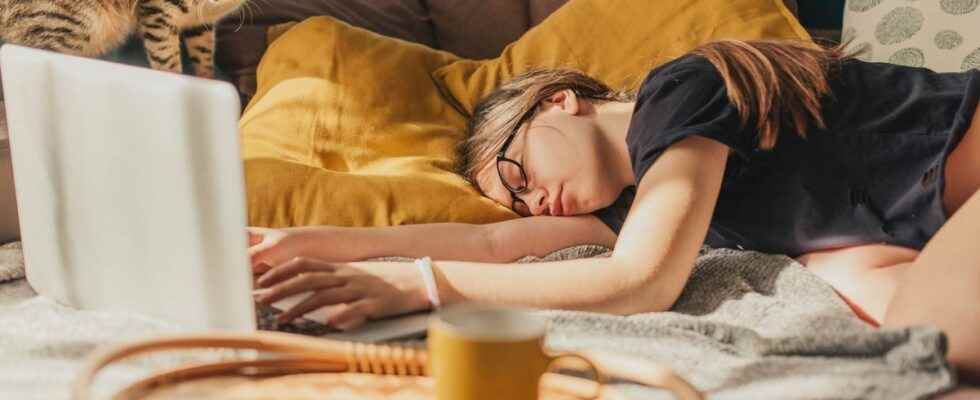Published on
Updated
Reading 3 mins.
To fight against fatigue and lack of concentration in adolescents, a team from the University of Medicine in Chicago has developed a method adapted to their pace. Light therapy would be the key.
Every night, your teenager is late to bed. Every day you find them tired. No wonder, according to the National Sleep Foundation and the American Academy of Sleep Medicine, your teen should indeed get 8-10 hours of sleep per night, but most get much less sleep, especially on school days. . But research recently published by RUSH the University of Chicago Physician, in the journal SLEEP would shed light on the best way to get them to close their eyes a little earlier, while taking into account the specific chronobiology of adolescents.
Puberty upsets the entire circadian rhythm
“There are many changes in the life of a teenager”acknowledges Stephanie J. Crowley, associate professor of behavioral science and director of the pediatric chronobiology and sleep research program at RUSH. “One is specifically a change in sleep biology that occurs during puberty.” A change that directly impacts his desire to go to sleep… without him being able to do anything about it.
“The brain systems that control sleep are changing in such a way that it’s easier for a teenager to stay awake later in the evening. One of these systems – the 24-hour circadian clock – is shifting later in the evening. time”, confirms Dr. Crowley. So there are two competing forces: one to go to bed earlier and adapt to the school schedule and the other, this natural biological change in the body of an adolescent. And a dilemma in every family to reconcile the rhythm of life and the rhythm of the night.
What tools to improve adolescent sleep?
Because of this complex conflict, RUSH researchers set out to test a two-week intervention that targets the circadian system to help teens find a better nighttime routine. Specifically, the researchers used light therapy on two weekend mornings for a total of 2.5 hours. The bright light tells the internal clock to wake up a little earlier. This change should make it easier for the adolescent to fall asleep at an appropriate time in the long term.
Dr. Crowley and his team then helped fight sleep deprivation by providing time management tools and eliminating certain after-school activities. The researchers were thus able to shift the teens’ bedtime by an hour and a half earlier. An expected reflex? Yes, but that we often forget in our everyday life: “Many adolescents studied did not need to be shifted earlier. They just needed behavioral support to try to manage their time in the evening and increase their sleep duration” concludes the study. With one last beneficial effect appreciated by the whole family: the adolescents in the intervention group were less tired, less irritable and less worried.
RUSH researchers are now conducting another study to determine if teens were able to maintain their improved sleep routine.
Consult a doctor online for your sleep disorders
A test to find out if your teenager is getting enough sleep?
In France too, adolescent sleep is of interest to science and medicine. As such, the Morpheus Network has put online a test developed by doctors and psychologists to assess the quality of sleep of adolescents aged 11 to 18 who have had sleep disorders for at least 3 months.
The test is based on a fairly long questionnaire to complete (between 20 and 30 minutes) drawn up by doctors and psychologists specializing in sleep. However, the Réseau Morphée advises the teenager to complete it alone, far from the influence of the parents. At the end of the questions, a report describing the symptoms and the sleep disorder probably involved (sleep apnea, restless legs syndrome, insomnia, hypersomnolence, etc.) is produced. A report that could very well serve as a basis for a possible medical consultation.
